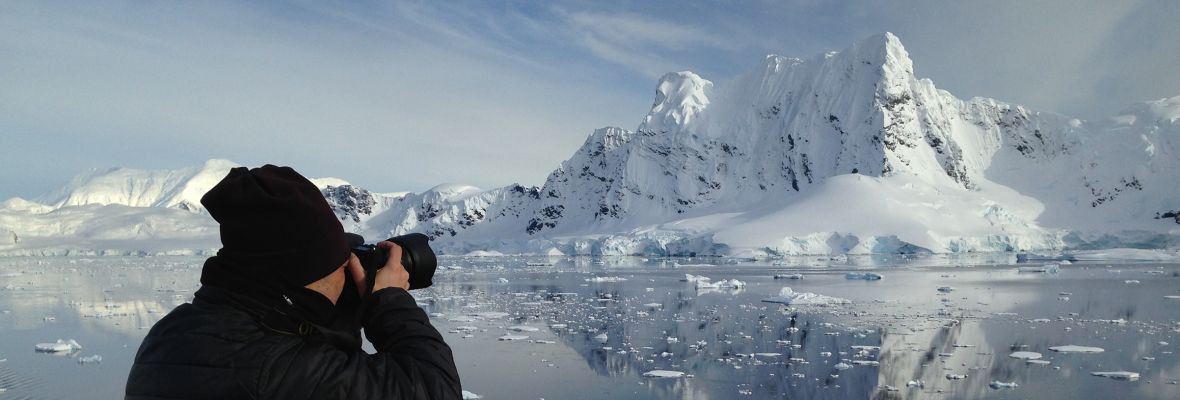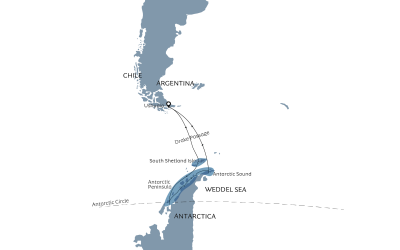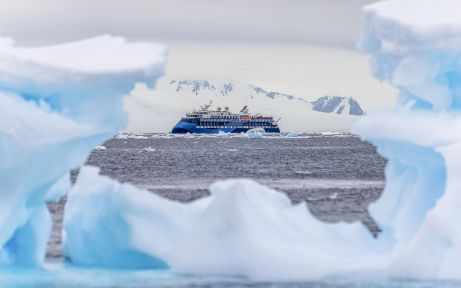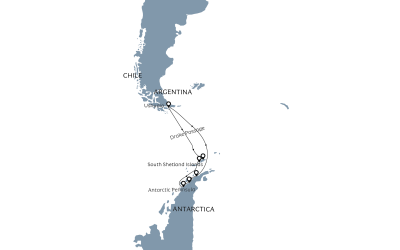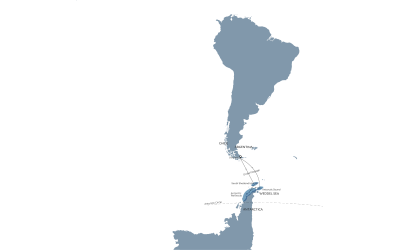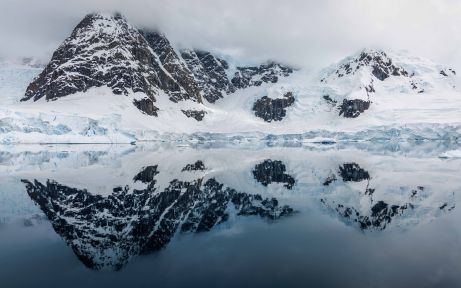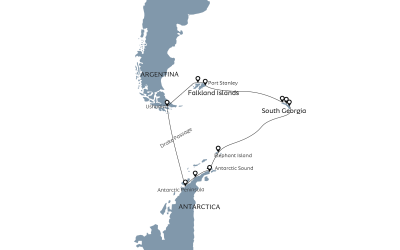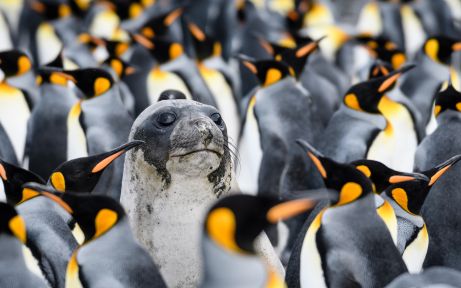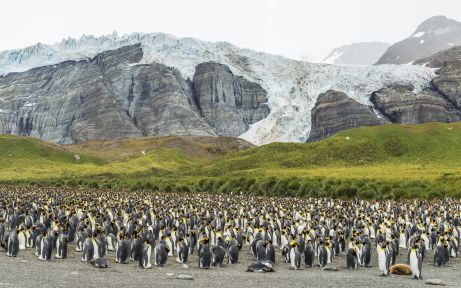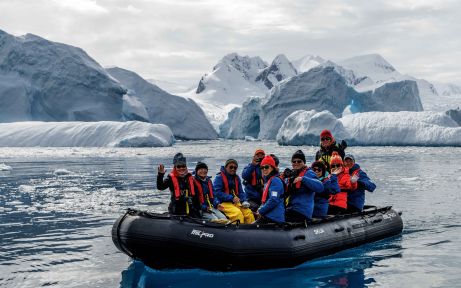We are thrilled to announce the official launch of our new website, Polar Latitudes Expeditions. Discover more in our latest news update, and visit our new website polar-latitudes.com.
I see photography as a key to unlock knowledge.
Award-winning photographer and regular contributor to the BBC, Renato Granieri has been featured in a number of international contests, and visited over 70 countries. Renato talks to us about his greatest passion: Documenting the world with his lens. 'I see photography as a way to unlock knowledge', he says, during a recent visit to the Antarctic region.
Originally from Alghero, Sardinia, Renato now calls the grey skies of London his home, but often heads to cooler places to pursue his passion: Nature Photography.
Specializing in wildlife and nature Photography, Renato has visited over 70 countries and been commissioned for newspapers, magazines, tour operators and tourist boards… even leading specialist photographic tours to a number of destinations around the planet. We're fortunate to have him as part of Albatros Expeditions team onboard Ocean Atlantic during our Antarctic region, and took the opportunity to interview him about the challenges and highlights of his profession, as well as curious anecdotes and expert advice for others following his path.
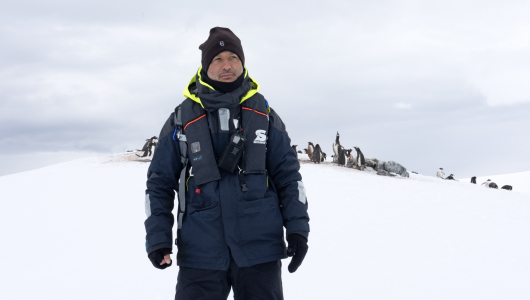
Q. You have traveled a lot and seen some wonderful sights through your lens. Could you tell us more about your experience visiting over 70 countries and documenting them through photography?
I see photography as a way to discover the World. It’s a way to connect with nature in all its forms. No matters of the latitudes I always seek for wild places where I can appreciate its wildlife and stunning landscapes. Often focusing on individual stories reveals to be the best plan. I spend considerable time in front of one or two penguins for example and I follow their movement to improve my understanding and compose the shot I am looking for.
Q. And what ignited the interest in photography? Usually, it’s not one moment, but a procession of things, or mentors, who show us the way. It is a gradual process indeed. Photography goes very well together with a number of natural skills you need to have. Resilience, determination, passion, organization, curiosity, ambition are only some of the values I believe in. I find other photographers and art galleries a huge source of inspiration. Never be complacent about your work. Continue to set goals and make every possible effort to achieve them.
Q. Your passion for human culture, history and wildlife has led you become an award-winning photographer. Would you share with us some of the stories and adventures you have experienced along the way? Photography has allowed me to approach wildlife and remote cultures I would have not visited otherwise. I love the feeling of meeting people from remote cultures, see the way they live, the skills they have, and the ones we lost. It’s a reconnection to nature moment for me. I visited Papua New Guinea on a few occasions, and it left me amazed. It is a different way of living, in harmony with nature, and it taught me a lot of things.
Q. Is there a message you try to pass along with your photography? Make photographs with your brain, not with your camera. Your camera is only a device, photographs must be conceived in your feelings and emotions. Be ambitious, determined, and have a clear idea of what direction you want to take. Pursue your dream and make it real.
Q. What additional certifications and skillsets have you found useful in your experience as a member of an Expedition Team? Each of us is a leader in their relevant fields. A passion to share and pass on knowledge professionally is a key of what we do.
Q. How do you prepare yourself for the harsh conditions and challenges of your job during an Arctic or Antarctic season? How do you prepare your equipment?
I wear a number of layers, mainly merino wool to keep warm, and hat and warm gloves with me at all times. My Nikon equipment seems to be sturdy and it copes well with extreme temperatures. I also use a waterproof bag for zodiac cruising not to damage the equipment with splashes from the sea if it is a choppy day.
Q. What are some of your favorite moments as an Expeditions Photographer?
I have experienced life-changing situations through my photography. Encounters with endangered wildlife that led to connection and elevated my empathy. I had a weaner elephant seal resting its head on my lap; I saw it coming towards me from over 50m, I stayed quiet, still, and it came right at me. Life-changing encounters do happen, if you stay quiet and let wildlife approach you.
Q. What initiatives or programs are you connected with / involved with / supportive of, that you would like for people to know more about?
I do believe we can all better contribute to look after ourselves and the environment we live in.
Ethiopian Wolf https://www.awf.org/wildlife-conservation/ethiopian-wolf
Orangutan conservation https://orangutan.org/
I feel we can live in harmony with nature, by respecting it and taking care of it. Avoid single use plastic as much as possible, and be more responsible for what we eat and buy.
Q. What advice do you have for people who would like to study a science branch of study, or who are pursuing a career in photography and would like to join an Expedition Team, or enroll in polar traveling related projects? Biology definitely helps as it’s connected with photography. A good understanding of the environment and wildlife is certainly an advantage for a photographer. But I am an economist, so I recycled other skills like working with a goal being analytical and creative. Anything is possible.

Follow Renato on Social Media: @renato_granieri_photography



